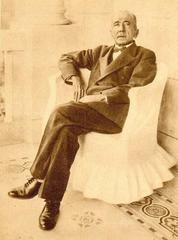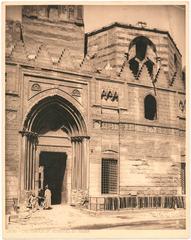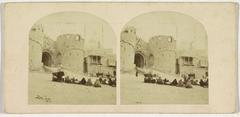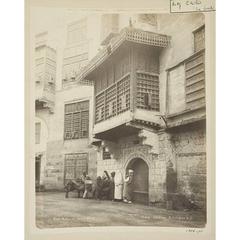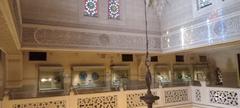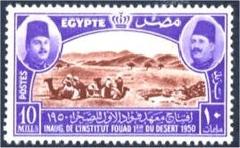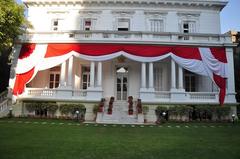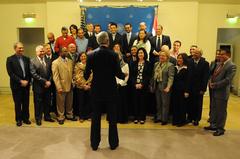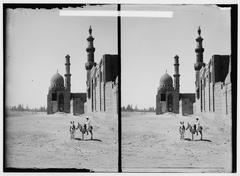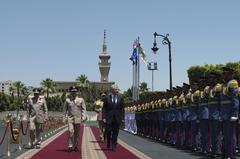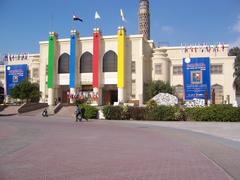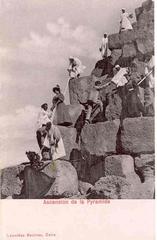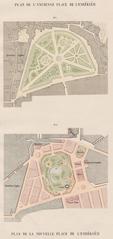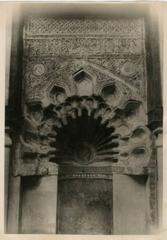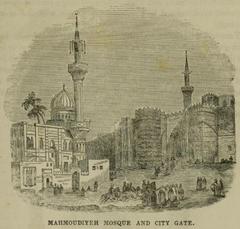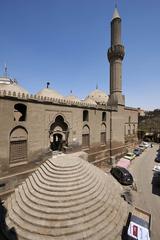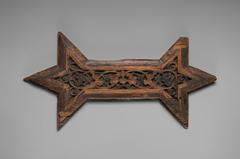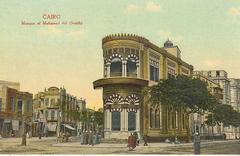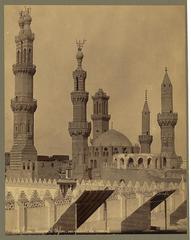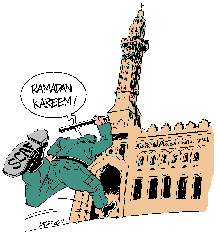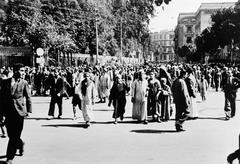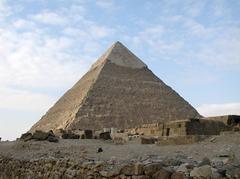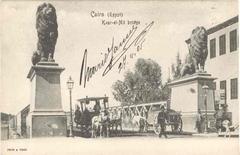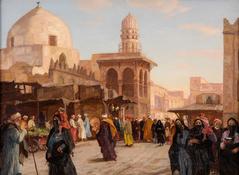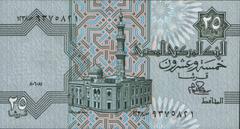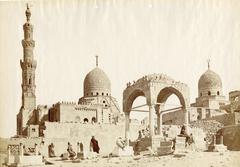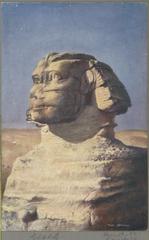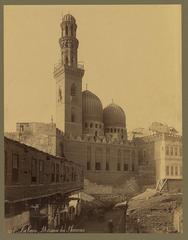Apostolic Nunciature to Egypt, Cairo: Visiting Hours, Access, and Historical Significance
Date: 03/07/2025
Introduction
The Apostolic Nunciature to Egypt in Cairo serves as the official diplomatic mission of the Holy See, embodying the Vatican’s commitment to fostering interfaith dialogue, supporting Egypt’s Catholic communities, and strengthening ties with both governmental and religious institutions. Although not a conventional tourist destination, the Nunciature’s role in Egypt’s spiritual and diplomatic landscape makes it a point of interest for those studying international relations, ecclesiastical affairs, and religious history.
This guide offers a comprehensive overview of the Nunciature’s historical background, leadership, visitor access protocols, cultural etiquette, safety guidelines, and nearby attractions. It also addresses practical travel tips and frequently asked questions, ensuring visitors and researchers have accurate, up-to-date information. For additional details or official updates, consult reputable sources such as Vatican News, King of Egypt Tours, and Lonely Planet.
Table of Contents
- Introduction
- Historical Background
- Leadership and Structure
- Visitor Information
- Cultural Etiquette and Safety
- Nearby Attractions
- Accessibility
- FAQs
- Additional Resources
- Conclusion
Historical Background
Origins and Significance
The Apostolic Nunciature to Egypt was established in the early 20th century, reflecting the Vatican’s recognition of Egypt’s religious and cultural influence in the Middle East and North Africa. Serving as both the Vatican’s embassy and a hub for ecclesiastical affairs, the Nunciature has played a central role in promoting religious diplomacy, humanitarian initiatives, and interfaith engagement—particularly with the Coptic Orthodox Church and Islamic institutions like Al-Azhar University.
Evolution of Diplomatic Relations
Formal diplomatic relations between the Holy See and Egypt were cemented in the 1940s. Since then, the Nunciature has been instrumental in advancing ecumenical dialogue, facilitating humanitarian projects, and nurturing peaceful coexistence among Egypt’s diverse religious communities. Notable milestones include papal visits, such as those by Pope John Paul II in 2000 and Pope Francis in 2017, which have underscored the Vatican’s commitment to dialogue and religious freedom (Vatican News).
Architectural and Cultural Context
Located in the distinguished Zamalek district, the Nunciature operates from a historic villa reflective of Cairo’s diplomatic architecture. Its proximity to notable landmarks—such as the Coptic Museum, the Egyptian Museum, and the Mosque of Muhammad Ali—highlights its place within Cairo’s tapestry of religious and cultural sites.
Leadership and Structure
Apostolic Nuncio and Staff
The Nunciature is headed by the Apostolic Nuncio, an archbishop appointed by the Pope to act as ambassador and ecclesiastical liaison. The Nuncio is supported by a team of Vatican diplomats and administrative staff, who manage diplomatic relations, coordinate with Egyptian authorities, and serve the needs of Egypt’s Catholic communities.
Functions and Engagement
The Nunciature’s duties include:
- Facilitating communication between the Holy See and Egyptian authorities
- Supporting the Catholic Church across various rites (Latin, Coptic Catholic, Melkite, etc.)
- Promoting interfaith dialogue with Muslim and Christian leaders
- Participating in humanitarian, educational, and cultural initiatives
- Advising on church governance and episcopal appointments
Visitor Information
Visiting Hours and Protocols
The Apostolic Nunciature is not open for public tours or casual visits. Access is by advance appointment only, typically for official business, religious ceremonies, or invited guests. There are no tickets or entry fees.
How to Arrange an Appointment
- Contact the Nunciature by phone (+20-2 2735.33.50) or through official Vatican channels
- Provide the purpose of your visit and required documentation
- Await confirmation and further instructions regarding your appointment
Security Procedures
- Arrive punctually, as late arrivals may be refused
- Bring valid photo identification (passport or national ID)
- Be prepared for security screening; photography is strictly prohibited within and around the premises
- All visitors must comply with diplomatic security protocols
Cultural Etiquette and Safety Guidelines
Dress Code
- Men: Long trousers and collared shirts
- Women: Shoulders and knees covered; consider a head covering in religious settings
- Avoid shorts, sleeveless tops, and casual attire
Behavior
- Address clergy with formal titles (“Your Excellency” for the Nuncio)
- Maintain a respectful and quiet demeanor
- Mobile phones should be silent; refrain from using them during your visit
Gift-Giving
- Small, appropriate gifts such as religious books or sweets are welcomed when meeting clergy
General Safety
- Zamalek is a safe, upscale district with a visible security presence (Intrepid Scout)
- Use taxis or ride-hailing apps like Uber or Careem for transport
- Remain vigilant with personal belongings, and avoid demonstrations or large gatherings
Nearby Attractions
While the Nunciature itself is not a tourist site, its central Cairo location offers easy access to:
- The Religious Complex in Old Cairo: Home to the Hanging Church, Ben Ezra Synagogue, and historic mosques (King of Egypt Tours)
- Coptic Museum: Showcasing Egypt’s Christian heritage
- Egyptian Museum: Renowned collection of Pharaonic artifacts
- Cairo Opera House: Premier venue for performing arts
- Khan El Khalili Bazaar: Experience Cairo’s vibrant marketplace
Accessibility
The historic villa housing the Nunciature may have limited accessibility for those with mobility impairments. Inform staff of any special needs when arranging your visit. There is no public parking on site; drop-offs or limited street parking are available in the area.
Frequently Asked Questions (FAQ)
Q: Can I visit the Apostolic Nunciature in Cairo for tourism?
A: No. Access is limited to official business or by invitation and prior appointment.
Q: What are the visiting hours?
A: Typically Sunday to Thursday, 9:00 AM to 3:00 PM, by appointment only. Closed on Fridays, Saturdays, and public holidays.
Q: Are there tickets or fees?
A: No. Visits are by appointment and free of charge.
Q: Is photography allowed?
A: Photography is prohibited both inside and around the premises.
Q: How do I arrange a visit?
A: Contact the Nunciature via phone or official Vatican channels to schedule an appointment.
Q: Are there guided tours?
A: No public tours are offered. Special events may occasionally include guided components for invited guests.
Q: What should I wear?
A: Dress conservatively, covering shoulders and knees; women should consider a head covering for religious events.
Additional Resources
- Vatican News: Pope Francis Egypt Visit
- King of Egypt Tours: Religious Complex in Egypt
- Lonely Planet: Things to Know Before Traveling to Cairo
- Official Vatican Website
- Embassy of the Holy See in Egypt
- Evisa Europe: Vatican Apostolic Nunciature in Cairo Egypt
- Egypt SeVisa: Essential Entry Requirements for Visiting Egypt
- Intrepid Scout: Egypt Travel Tips
Conclusion
The Apostolic Nunciature to Egypt is a testament to the enduring relationship between the Vatican and Egypt, representing a unique intersection of diplomacy, faith, and cultural heritage in Cairo. While not accessible to the general public, understanding its historical and contemporary significance enriches appreciation for Egypt’s diverse religious landscape. For those seeking to engage with Cairo’s spiritual and diplomatic heritage, exploring the city’s nearby religious and historical sites is highly recommended. Always plan ahead, respect local customs, and consult official resources for the latest information.
For more travel guides and real-time updates about Cairo’s historical and religious landmarks, consider using the Audiala app and following our social media channels.
